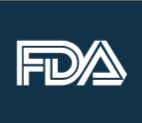United Fresh Eyes Produce-Related Changes to FSMA Proposed Rules

Editor's Note: The United Fresh Produce Association (United Fresh) yesterday explained in detail how the U.S. Food and Drug Administration's (FDA) recent changes to four proposed rules under the Food Safety Modernization Act (FSMA) will likely affect the produce industry. Key changes were made in the areas of water testing, compost use, and the definition of "farm," among others. Text of the United Fresh newsletter article follows.
The four supplementary proposals, released last Friday by the FDA, include several revisions to four of FDA’s original draft rules under the Food Safety Modernization Act, which was signed into law in January of 2011. The four updated proposals are for the rules on produce safety, preventive controls for human food, preventive controls for animal food, and the foreign supplier verification program.
In response to public comments, the FDA is proposing to revise the water quality testing provisions in the proposed produce safety rule to account for natural variations in water sources and to adjust its approach to manure and compost used in crop production pending further research on this issue.
The FDA also is proposing a new definition of which farms would be subject to the produce safety rule. The proposed rule would not apply to farms with $25,000 or less in produce sales, rather than setting the threshold based on sales of all foods produced on the farm. The updated proposed rules also propose to simplify which entities are covered by the produce safety rule and which would be covered by the preventive controls rules.
Key provisions in the supplementary proposals:
- Revision of the testing frequencies for water sources used in-field.
- Inclusion of a “die-off” provision for water that does not meet the standard.
- Revision of the compost pre-harvest interval and a promise to establish a science-based, pre-harvest interval for non-composted soil amendments of animal origin (i.e., manure) before the rule is finalized.
- The Preventive Controls for Animal Feed now clarifies that human food by-products (e.g., culls and produce waste from fresh and fresh-cut produce operations) are not required to establish food safety plans for such products if intended for animal feed, but must abide by basic GMPs to prevent such products from becoming contaminated (e.g., by chemicals and trash).
- For Preventive Controls for Human Food, a redefinition of farms to include more activities as “farming,” and an allowance for farms to pack produce that was not grown on the same farm and still be considered a farm under the Produce Safety rule.
- On the other hand, new proposals to mandate supplier approval programs, product testing and environmental monitoring at all operations subject to the Preventive Controls rules.
- Standalone packinghouses and storage/distribution operations that only handle raw agricultural commodities still proposed to be under Preventive Controls because of facility registration, with all the requirements for a written hazard analysis, food safety plan, monitoring and corrective action records, validation of identified preventive controls, supplier approval programs, product testing and environmental monitoring. On-farm packinghouses and storage/distribution operations are still proposed to be under Produce Safety, with almost none of these requirements.
- Foreign Supplier draft rule still expressly proposes to require importers of raw agricultural commodities to perform a hazard analysis beyond the requirements of the Produce Safety rule, and to perform or review an on-site audit of foreign suppliers before accepting product.
- Importers are not required to perform such when sourcing from exempt foreign suppliers (e.g., less than $25,000 annual produce sales)
“We continue to appreciate FDA’s transparency during this rulemaking process, giving us a look at what they gleaned from initial comments and their updated thinking,” said David Gombas, senior vice president, food safety and technology. “While growers subject to the Produce Safety rule should be happier with FDA’s proposed “safe harbor” for water source testing and elimination of a pre-harvest interval for compost use, it is apparent that FDA and the fresh produce industry need to take a closer look at the proposed Preventive Controls and Foreign Supplier rules as they relate to post-harvest handling and importing of fresh produce. Clearly, FDA still intends to take a one-size-fits-all approach in these rules as well, and has not considered the consequences to the fresh produce supply chain by treating fresh produce raw agricultural commodities the same as manufactured ingredients and products.”
While the official publication in the Federal Register of the four supplementary proposals for the FSMA draft rules is scheduled for Sept. 29, the pre-publication documents are available for download now in PDF format.
Please use the following links to access the pre-publication documents and related fact sheets:
- Produce Safety and Fact Sheet
- Preventive Controls for Human Food and Fact Sheet
- Preventive Controls for Animal Feed and Fact Sheet
- Foreign Supplier Verification Programs and Fact Sheet
The FDA is accepting comments on the proposed revisions of the four rules for 75 days. FDA’s Mike Taylor, deputy commissioner for Foods and Veterinary Medicine, tells United Fresh that no extensions of the comment period are likely to be granted. FDA continues to review comments already received on the provisions of the proposed rules that are staying the same. FDA says it will consider both sets of comments before issuing final rules in 2015.
For more information on the FDA’s FSMA activities, visit the FDA website. More information about United’s comments on the FSMA rules can be found at www.UnitedFresh.org/FSMA. Readers may also contact David Gombas, senior vice president, food safety and technology, at 202-303-3411.
Looking for a reprint of this article?
From high-res PDFs to custom plaques, order your copy today!



